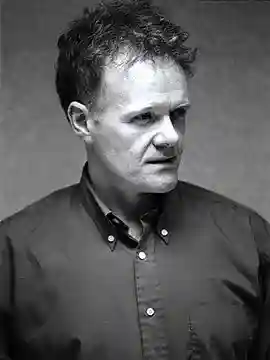Dayzone is a city that never sleeps, where the lights never go out, where the sky – the natural sky – cannot be seen because of the millions upon millions of lamps, flames, bulbs, neon signs, lanterns and other light and heat emitting devices suspended above the streets. In such an enclosed, sealed environment, one completely cut off from the normal cycle of day and night, and the changing of the seasons, how would people tell the time?
This was the fundamental question presented to me as I wrote the first few chapters of A Man of Shadows. I figured that the normal cycles would be adhered to for a while, in the city’s early years, but would then start to break down. I began to imagine a world where time had in some way become a pliable form, something that could be broken down and split apart, and put back together in new and interesting ways, and that it would also be a substance that could be bought and sold and allocated, rather like the way in which radio wave frequencies are sold off by governments. The idea of multiple time lines came to me.
The ancient Greeks didn’t have fixed hour lengths. Rather, they divided the daylight hours into twelve equal segments, which they called the “horai”. So an hour in summer was shorter than an hour in winter. The measurement of time is a human construct. So in Dayzone there could be any number of equal or unequal hours in a day, divided in any way the inventor deemed fit. Over the years (whatever a year might mean in such a place) more and more separate time lines would be introduced, some of them of a corporate nature, others made up by families or individuals, or by clubs, small businesses and interest groups. The possibilities would be endless. Some time lines would be official, some illegal, others sponsored by companies: It’s Drinking Time! Brought to you by Whitsuntide Beer. To meet with someone you would have to jump from your current time line, to theirs, or agree on a mutual future time line. In my mind, I saw people constantly adjusting their clocks and wristwatches, as they crossed from one line to another, often doing this many times in a day (a day?), and sometimes becoming lost in the increasingly complicated tangle of chronologies. And yet, for the novel to work, the citizens would have to love the chaos, the sense of liberty, this constant shifting of expectations. Dayzone feeds a basic human desire to be free of the fixed clock as it ticks its way towards inevitable demise. Yes, I imagined the citizens as being happy, on the whole. They like living here.
But there would have to be consequences, of course; different kinds of physical sickness, mental disorder and addiction. The most common is “clocklag”, the failure of the body’s internal clock to adjust as too many time lines are crossed in too short a period. But other effects are more serious. One character describes chronostasis as what happens when “all the numbers fall off your clockface.” Sufferers are frozen in place, staring ahead, unable to move. Time has left them behind. I knew that my private eye hero Nyquist would be troubled by these and other ailments as he tried to solve the case he was working on: his sense of self would start to break down. Without a fixed idea of time, how do we place ourselves in the world? If there’s no past, present or future, can there be any progress? Perhaps, in the end, the body’s decay is the only clock that really matters.
How would I even tell the reader what year it is, as the story unfolds? I knew I wanted to create an alternative past, before digital culture took hold of us. And I wanted the book to have a definite noir feel. One date given is 1959. But even then, the question arises: “By whose calendar?” As one character says, “I try my best to keep track, but whenever there’s an election and a new council come in, they insist in bringing their own time with them. I’ve lived through them all.” So, life goes on, and the people manage to negotiate a world that shifts constantly around them, without hope of a firm footing. And it’s getting worse...
Dayzone started out as the ultimate twenty-four hour city, a place where work and play need never stop. It’s become so much more than that, over the ensuing decades. And as Nyquist is about to find out, in this city time can almost be viewed as a living substance, one that can so easily end up wrapping itself around your body, your neck, and pulling tight.
Read part 5 HERE
Get A Man of Shadows at Bookshop or Amazon

About the author
Jeff Noon is an award-winning British cult novelist, short story writer and playwright. He won the Arthur C Clarke Award for Vurt, the John W Campbell award for Best New Writer, a Tinniswood Award for innovation in radio drama and the Mobil prize for playwriting.
He was trained in the visual arts, and was musically active on the punk scene before starting to write plays for the theatre. His work spans SF and fantasy genres, exploring the ever-changing borderzone between genre fiction and the avant-garde.








